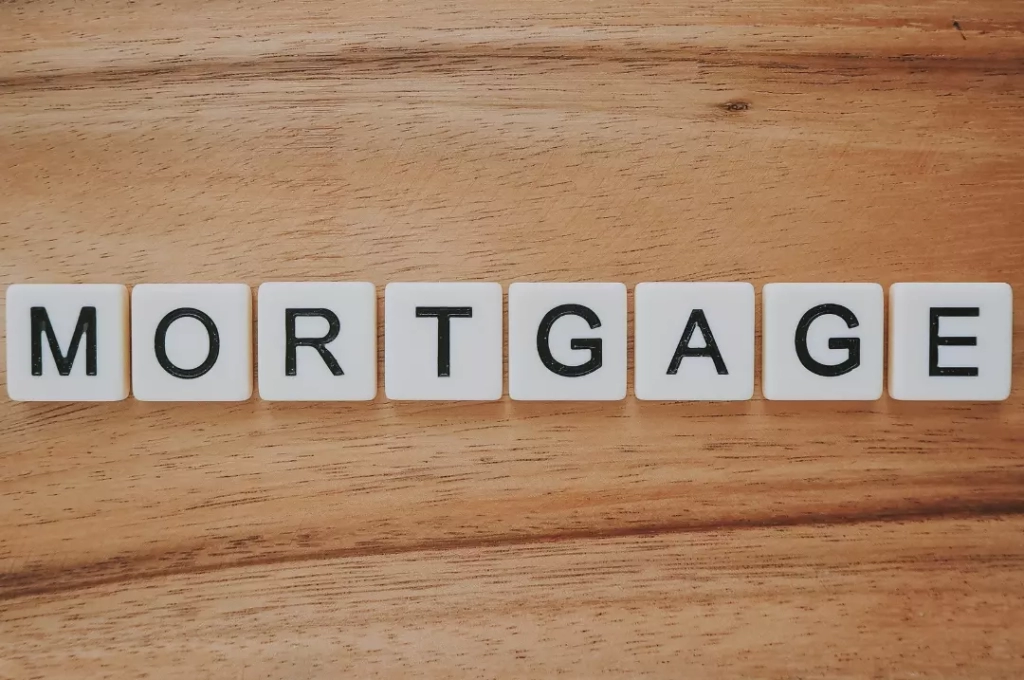What is Lenders Mortgage Insurance?
Table of Contents
ToggleAre you planning to buy a home but don’t have the entire 20% down payment that some lenders ask for? Well, there’s something you should know called Lenders Mortgage Insurance (LMI). It’s a kind of insurance that can help you out in this situation.
When you first see this extra cost, it might feel like something you don’t really need and it can make you worried. But if you know what it is and how to use it well, LMI can actually help you save a lot of money in the future.
In this blog, we’re going to cover everything you need to know about Lenders Mortgage Insurance (LMI). We’ll start by explaining what LMI actually is, and then we’ll dive into whether it’s something worth considering. So if you have any questions about Lenders Mortgage Insurance, keep reading because we’ve got you covered!
What is Lenders Mortgage Insurance (LMI)?
Lenders Mortgage Insurance (LMI) is a term you often hear when you’re buying a property, but let’s break it down and understand what it really means.
Basically, LMI (Lenders Mortgage Insurance) is a kind of insurance that people need to get when they’re getting a home loan. It’s there to protect the lender in case the borrower can’t pay back the loan. So if the borrower can’t make their repayments, the insurance steps in and makes sure the lender doesn’t suffer financially.
LMI might cost you extra money, but it can also give you a chance to buy a house even if you don’t have much saved up for a deposit.
It’s really important to know all the details about LMI (Lenders Mortgage Insurance) and how it can impact your application for a home loan.
Whether you’re buying your first home or a seasoned investor, it’s important to learn about LMI and how it can affect your journey to owning a property. Understanding LMI will help you determine if it can be beneficial or if it might pose some challenges when it comes to buying a property.
Features and benefits
When you want to buy a house, having a big down payment can be tough for a lot of Australians. That’s when LMI can help you out.
Even though it might seem like you’re paying extra, this insurance policy actually has a lot of advantages for both the person lending you money and for you, the person borrowing it.
For borrowers, LMI can help them get a loan even if they have a smaller down payment. Basically, the insurance policy acts as a backup for the lender, giving them more confidence to lend to them. So, with LMI, you might be able to buy a house sooner than you thought because you won’t need to save up a huge deposit.
For lenders, LMI is a handy thing. It’s like a safety net for loans when the down payment is less than 20%. It gives them peace of mind, knowing they’re protected if the borrower can’t pay back the loan.
The Australian property market is always changing, and LMI can bring lots of benefits to both the lender and the borrower. If you’re thinking about buying a property, it’s definitely something you should think about.
How much does LMI cost?
If you’re buying a home for the first time, you’ll probably have to pay for LMI before your loan gets approved. But here’s the tricky part: the cost varies depending on different factors. So, there’s no one-size-fits-all answer to how much it actually costs.
LMI premiums are calculated based on a number of factors, including the size of your deposit, the purchase price of the property, and the loan-to-value ratio (LVR) of your mortgage.
On average, LMI can cost anywhere from 1% to 4% of your total loan amount, meaning it can add up to thousands of dollars.
However, the good news is that some lenders allow you to add this cost to your loan upfront, rather than paying it as a lump sum.
If you’re curious about how much LMI will cost you, it’s essential to have a chat with your lender and ask for a customised quote that takes into account your specific situation.

How is LMI calculated?
LMI is calculated based on a percentage of the total amount borrowed, as well as the loan-to-value ratio (LVR). The higher the LVR, the higher the percentage of LMI you’ll need to pay.
But here’s the thing: not all lenders calculate LMI the same way. So, before you go ahead and choose a home loan, it’s really important to take a look at different lenders and see how they handle LMI. This way, you can make sure you’re making the best decision for your situation.
Don’t let LMI catch you off guard – do your research and make an informed decision.
How does LMI help me?
If you’re buying a home for the first time in Australia, there’s a pretty good chance you’ll have to get LMI to be able to get a mortgage. But don’t get confused by the name – LMI isn’t only for lenders.
It’s designed to help you out as a borrower by giving you some extra protection. This means you can buy a home with a smaller deposit than you would normally need.
Basically, LMI is like a safety net that kicks in if you find yourself unable to pay your mortgage in the future. It’s there to help protect you if things don’t go as planned and you face difficulties making your payments.
Adding LMI to your mortgage means you’ll have to pay more, but it can actually be a smart move if it helps you to get into the property market sooner.
Plus, once you’ve built up enough equity in your home, you can often have the LMI premium refunded.
So, while LMI may seem like an added expense, it can actually be a smart financial strategy for many looking to buy their first home.
How is the LMI premium paid?
The Lenders Mortgage Insurance (LMI) premium is typically paid by the borrower as a one-off lump sum payment.
The premium you pay is figured out by looking at how much you’re borrowing compared to the value of the property you want to buy. It’s called the loan-to-value ratio. If the ratio is higher, then the premium you’ll have to pay will be higher too.
But here’s the thing: if you’re a borrower, you might have an option to include the extra cost in your monthly mortgage payments. This means your total loan amount will go up, and you’ll end up paying interest on that extra cost throughout the entire loan period.
Before you decide to buy a property, it’s really important to know about how LMI affects your mortgage payments. Understanding this can help you make a better decision.
Exemptions from paying for LMI
Do you dream of having your own home but worry about the cost of Lenders Mortgage Insurance (LMI)? Well, there’s some good news for you! There are actually a few ways you might be able to avoid paying for LMI.
Let’s say you work in the medical field. Well, good news! You might not have to pay this fee. There’s this thing called a waiver that could make it go away for you. And guess what? If you’re in the defence force and have put in a good chunk of time, there’s an exemption just for you too. So, you might not have to worry about that fee at all!
It’s a good idea to talk to your lender and find out if you qualify for any exemptions. This could actually save you a lot of money, possibly even thousands of dollars! Don’t let LMI stop you from fulfilling your dream of owning a home. Take some time to do some research and see if there are any exemptions that you can take advantage of. It’s definitely worth looking into!

Limitations when using LMI
Buying a house is a big deal and an exciting moment for a lot of Aussies, but it can also be a bit tough at times.
When you’re looking to get a mortgage, you might want to think about LMI. It can actually help increase your chances of getting approved.
If you’re thinking about using LMI to buy a property with a smaller deposit, it’s important to know what it can and can’t do.
- LMI only protects the lender, not the borrower, in the event of a default.
- LMI fees can add up over time, increasing the overall cost of the loan.
As with any financial decision, it’s important to weigh the pros and cons of LMI and consider alternative options before making a commitment.
By doing your research and seeking advice from a trusted mortgage broker, you can make informed decisions that align with your financial goals.
How can you avoid paying LMI?
If you’re a first-time homebuyer, one thing you need to watch out for is Lenders Mortgage Insurance (LMI), which can add thousands of dollars to your home loan. But don’t worry, there are ways to avoid paying LMI.
- Save up a deposit of at least 20% of the purchase price of the property. This means you won’t need to borrow as much, and therefore won’t need LMI.
- Get a guarantor, such as a family member who is willing to use their own property as security for your loan.
- Consider looking for loans that offer LMI waivers or discounts.
By doing your research and being strategic, you can avoid LMI and save yourself a significant amount of money in the long run.
Lenders Mortgage Insurance vs Mortgage Protection Insurance
When it comes to purchasing a home in Australia, there are two types of insurance policies that homeowners should be aware of: Lenders Mortgage Insurance and Mortgage Protection Insurance.
While both policies offer protection in the event of unforeseen circumstances, they serve different purposes.
Lenders Mortgage Insurance helps the lender in case a homeowner can’t make their mortgage payments anymore. It’s like a safety net for the lender. On the other hand, Mortgage Protection Insurance is for the homeowner. It’s there to protect them if they get sick, injured, or lose their job. It’s like having some extra support in case something bad happens.
It’s important for homeowners to carefully consider their unique needs and circumstances when deciding which type of insurance to purchase.
By understanding the differences between these two policies, homeowners can make an informed decision about their mortgage insurance options.
Am I entitled to a refund of LMI if I repay my loan early?
If you’re thinking about paying off your home loan early, you might be wondering if you can get some money back from the LMI you paid when you got the loan. It makes sense to ask because LMI can be quite expensive, sometimes costing you thousands of dollars.
Unfortunately, it’s not easy to give a simple answer to that question because it depends on a few things. It mainly relies on your own situation and the specific details of your LMI policy.
However, with the right help and guidance, you may be able to reclaim some of the LMI premium you paid.

Lenders Mortgage Insurance (LMI) is an important thing to know about when you’re getting a mortgage loan. Basically, it gives the lender some extra protection in case you can’t pay back your loan.
It’s really important to know about the features and benefits of this insurance when you’re deciding how to set up your mortgage. This will help you make a smart choice and understand what you’re getting into.









